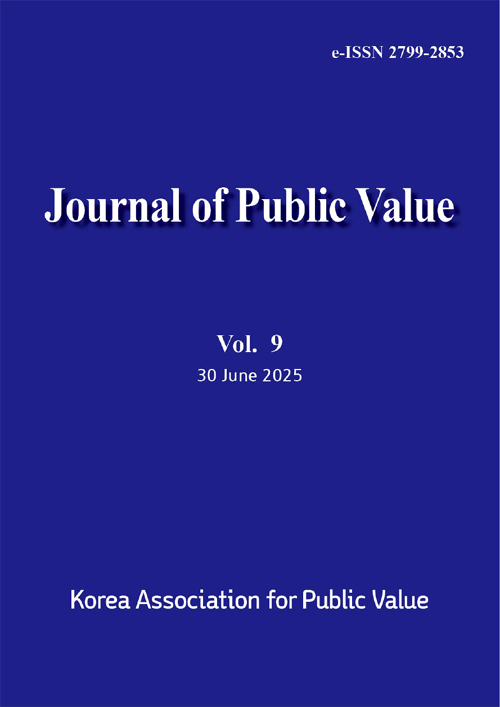학술논문
Making Good Citizens from the Authoritarian Period to the Reform Era in Indonesia
이용수 0
- 영문명
- 발행기관
- 한국공공가치학회
- 저자명
- Samsuri
- 간행물 정보
- 『Journal of Public Value』Vol. 9, 99~104쪽, 전체 6쪽
- 주제분류
- 사회과학 > 사회복지학
- 파일형태
- 발행일자
- 2025.06.30

국문 초록
Purpose: Universally the idea of a good citizen becomes an ideal sought after by every nation through its national education policies. The profile of a good citizen is largely determined by the perspective of each country's government. This article examines the dynamics of developing the profile of a good citizen in Indonesia during President Suharto's administration (New Order regime) up to the reform era.
Method: A comparative study was conducted on several civic education policy documents displayed under various school curriculum nomenclatures during both periods. These documents included the regulations, and curricula civic education.
Results: The study's findings indicate that in both governmental periods, the profile of a good citizen was based on national values derived from Pancasila (the five principles: belief in God, humanity, unity/nationalism, democracy, and justice). The difference lies in how, during the New Order, the profile of a citizen was portrayed as an Indonesian who supported the development rhetoric to achieve national objectives. The authoritarian political system of the New Order considered harmony as a primary value across various dimensions. In the reform era, the aspiration for democratization, as a solution to the multidimensional crisis of the New Order government, was reflected in various curricular nomenclatures such as Civic Education (2006 Curriculum), Pancasila and Civic Education (2013 Curriculum), and Pancasila Education (Independent Curriculum, 2022).
Conclusion: This article concluded two aspects. Firstly, although both aimed to establish efforts to shape the profile of good citizens, they were top-down in nature. This means that the state, through government policies of each period, held the authority and primary right to determine how and what constitutes a good citizen. Secondly, the political atmosphere of each regime era shaped various citizen profiles aligned with their respective national political interests. During the New Order era, the regimentation of Pancasila as the character of a good citizen was institutionalized through the P4 policy. In the reform period, the democratic atmosphere that became the political norm post-authoritarianism has not fully reflected the profile of good citizens with a democratic spirit rooted in Indonesian identity.
영문 초록
목차
1. Introduction
2. Good Citizens Education policy in Indonesian New Order Contexts
3. “New Paradigm” for Good Citizens in Indonesian Post-Authoritarian Contexts
4. Good Citizens by Character Education Design
Dakhidae 2001:26).
5. Reviving Pancasila values within Curriculum 2013 and Independent Curriculum (Kurikulum Merdeka).
6. Conclusion
7. References
해당간행물 수록 논문
참고문헌
최근 이용한 논문
교보eBook 첫 방문을 환영 합니다!

신규가입 혜택 지급이 완료 되었습니다.
바로 사용 가능한 교보e캐시 1,000원 (유효기간 7일)
지금 바로 교보eBook의 다양한 콘텐츠를 이용해 보세요!


